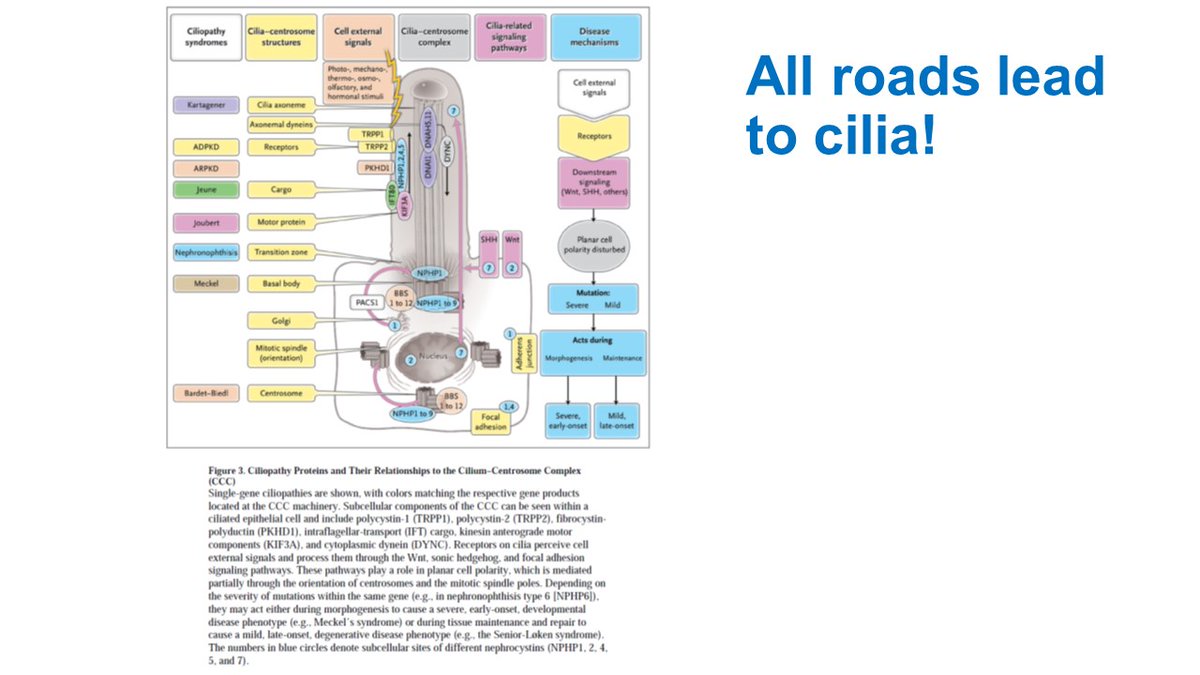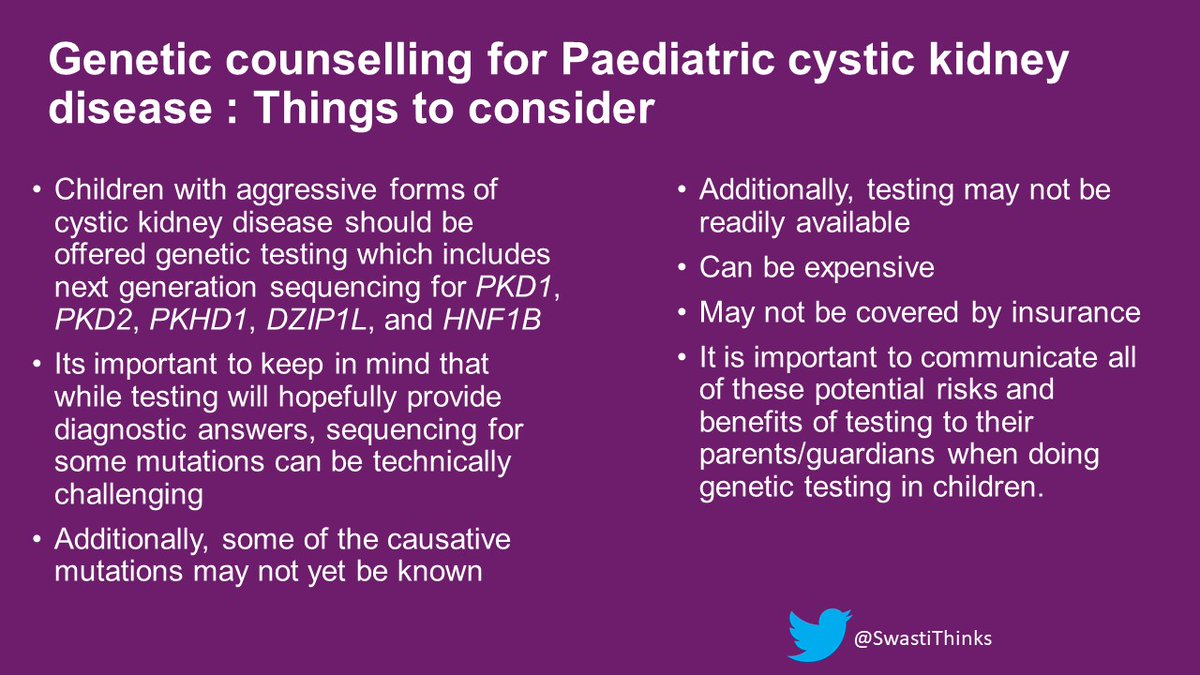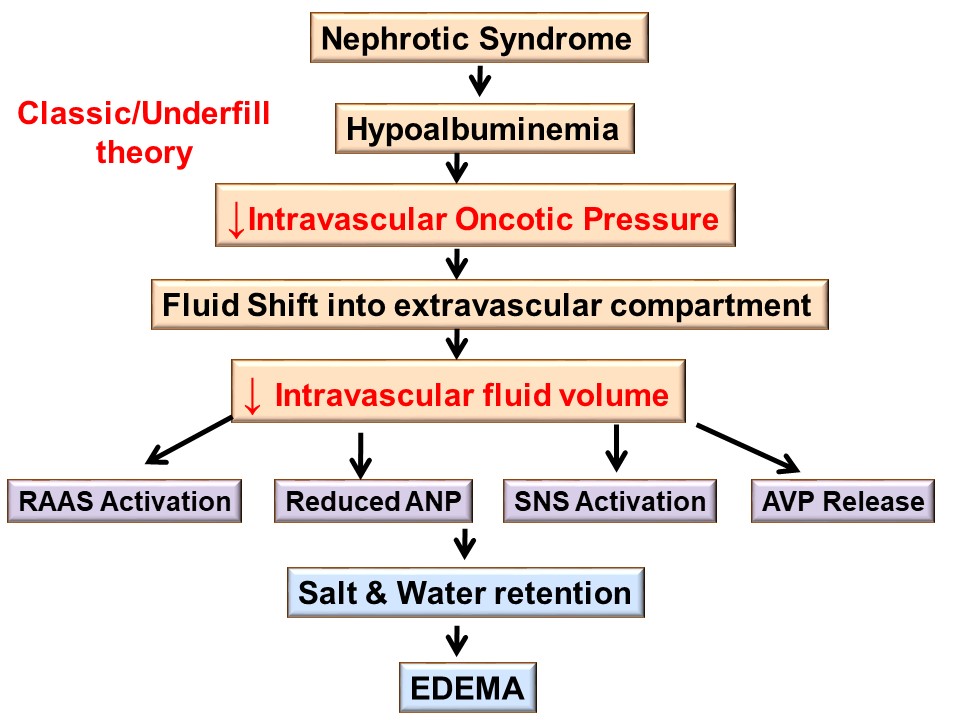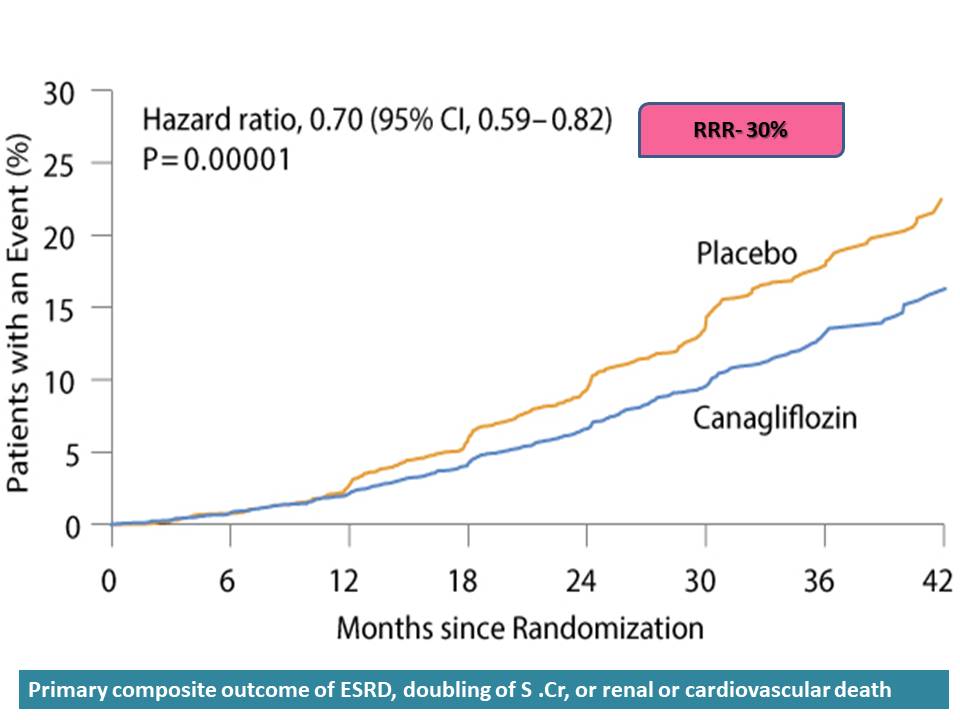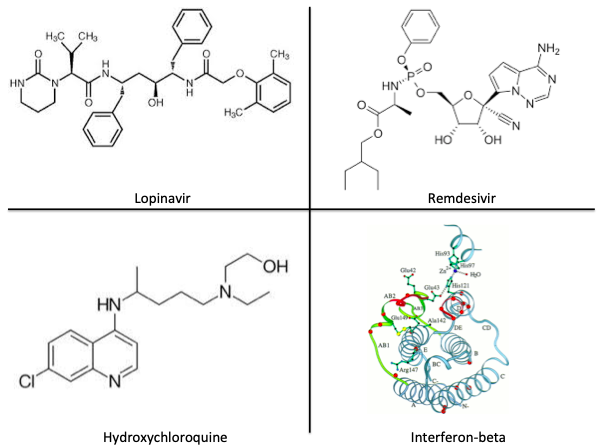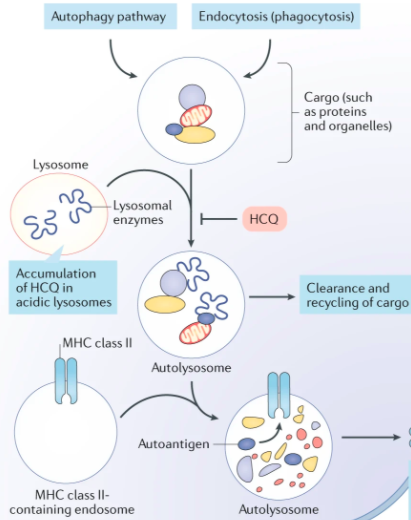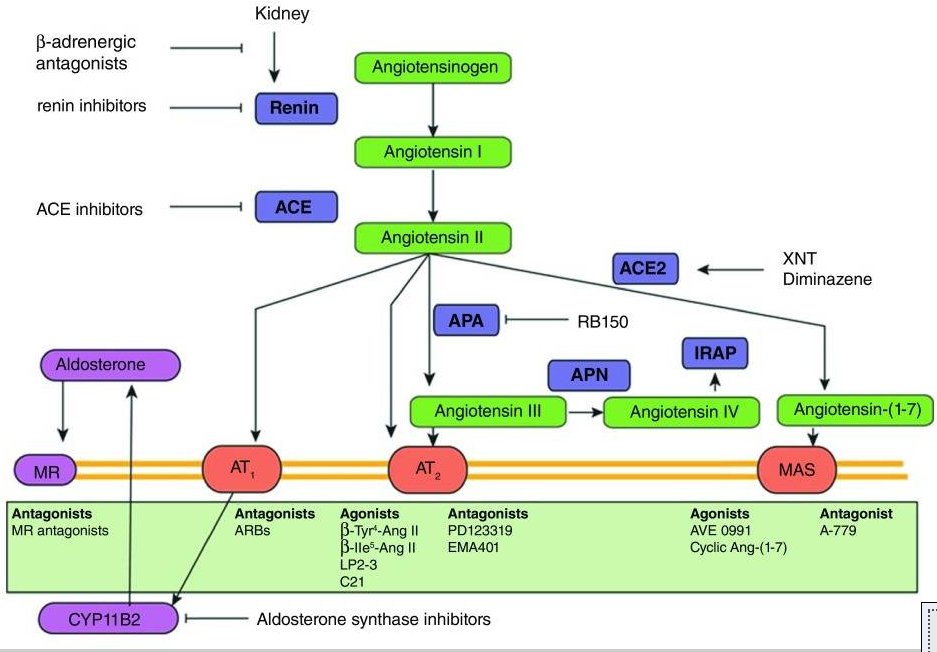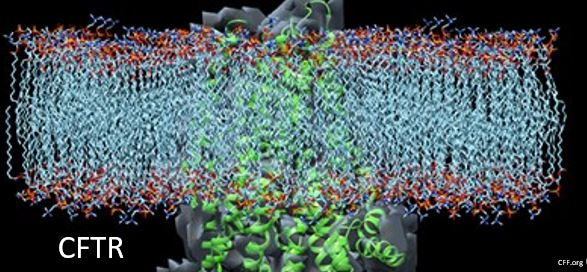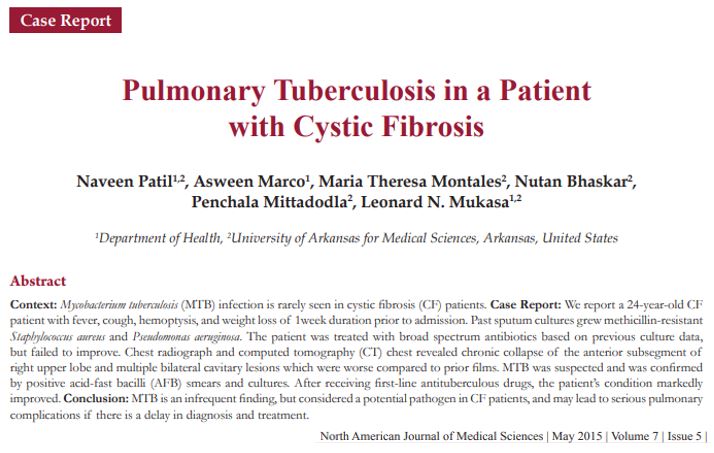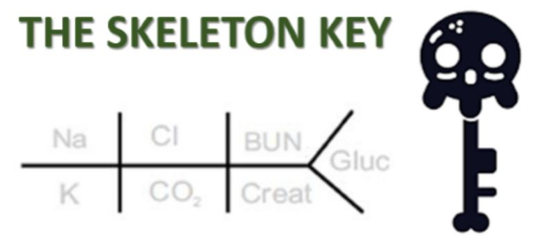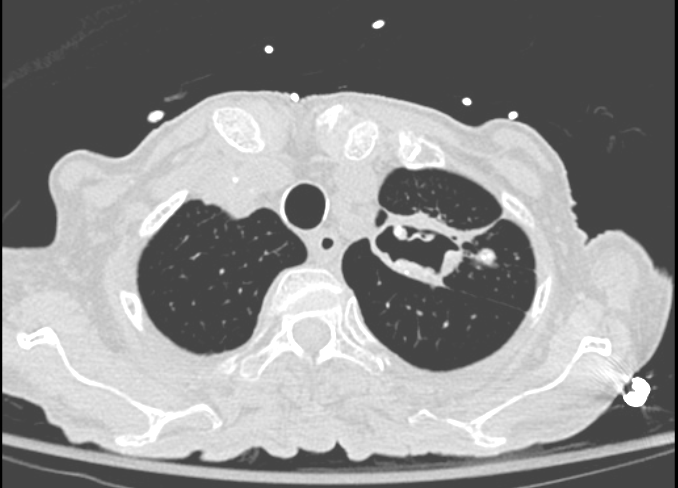🌟ADPKD
🌟 ARPKD
🌟Nephronophthisis
🌟 HNF-Beta related disease
🌟Presents mostly in the 4th decade of life
🌟Caused by mutations in polycystin 1, 2 (PKD 1, PKD 2) and rarely GANAB gene
nejm.org/doi/full/10.10…
ncbi.nlm.nih.gov/pubmed/27259053
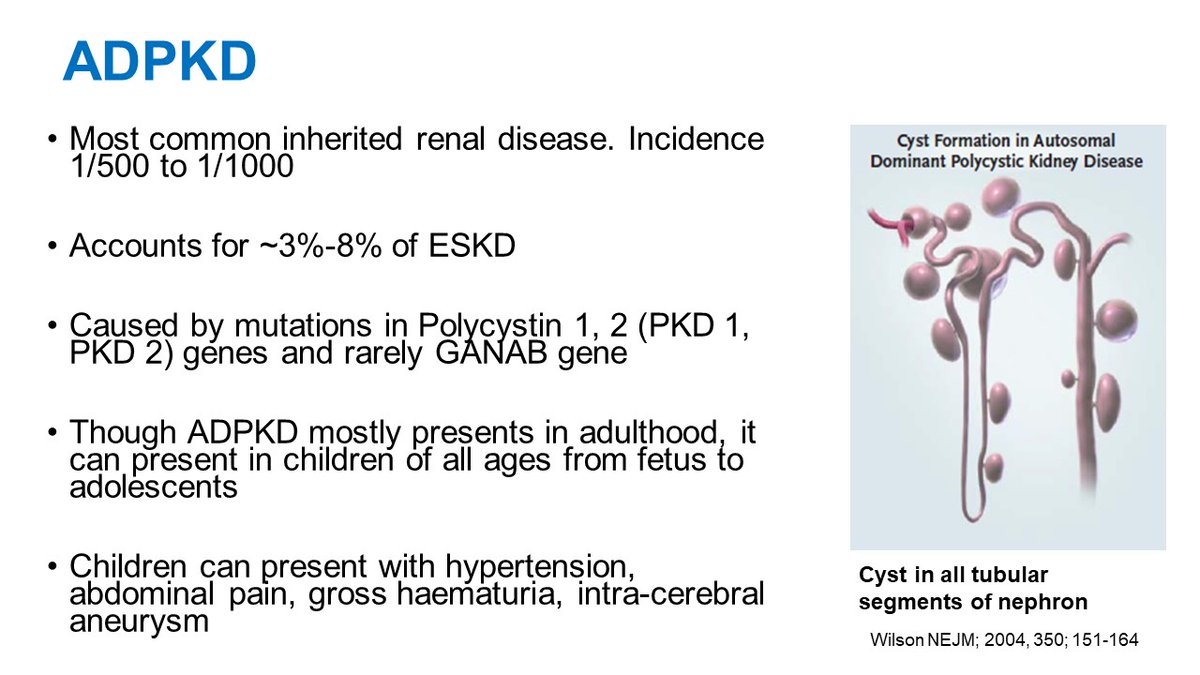
1) 5 yrs old, No symptoms, strong family Hx of ADPKD
2) 1 yr old, Bilat large renal cysts, hypertension & no family Hx
3) 18 year old with family Hx , wants to donate kidneys to his relative with ESKD
•Young person with strong family history of ADPKD
•Who is now considering living related donation to a relative with ESKD
•Because we know that renal ultrasound may not show cysts in young people ncbi.nlm.nih.gov/pmc/articles/P…
•It may cause undue anxiety
•May lead to loss of insurance
•Furthermore, there is no specific treatment approved in children yet.
ncbi.nlm.nih.gov/pmc/articles/P…
•How ADPKD is inherited
•Risks/benefits of testing
•Diagnostic screening with ultrasound or annual BP and proteinuria check can be offered
•At-risk children should be made aware of their risk once they are adults
•Caused by mutation in PKHD1 and DZIP1L gene
•Mostly presents as neonate or even in utero as bilateral enlarged echogenic kidneys and oligohydramnios
•Can present at birth with potter’s sequence
pubs.rsna.org/doi/pdf/10.114… ncbi.nlm.nih.gov/pmc/articles/P…
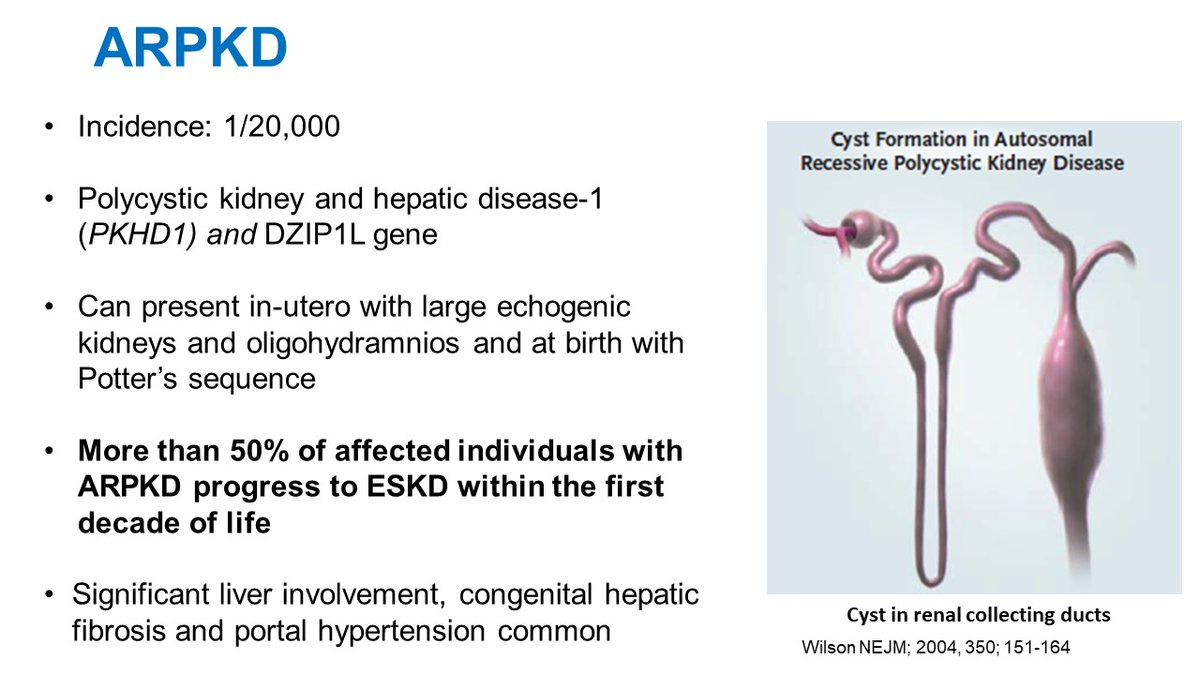
ackdjournal.org/article/S1548-…
•Small to normal size kidneys
•Corticomedullary cysts
•Urinary concentrating defects
•Polyuria, polydipsia
•Bland Urine
•Growth retardation
•Anaemia
•Progressive kidney disease
ncbi.nlm.nih.gov/pmc/articles/P…
ncbi.nlm.nih.gov/pmc/articles/P…
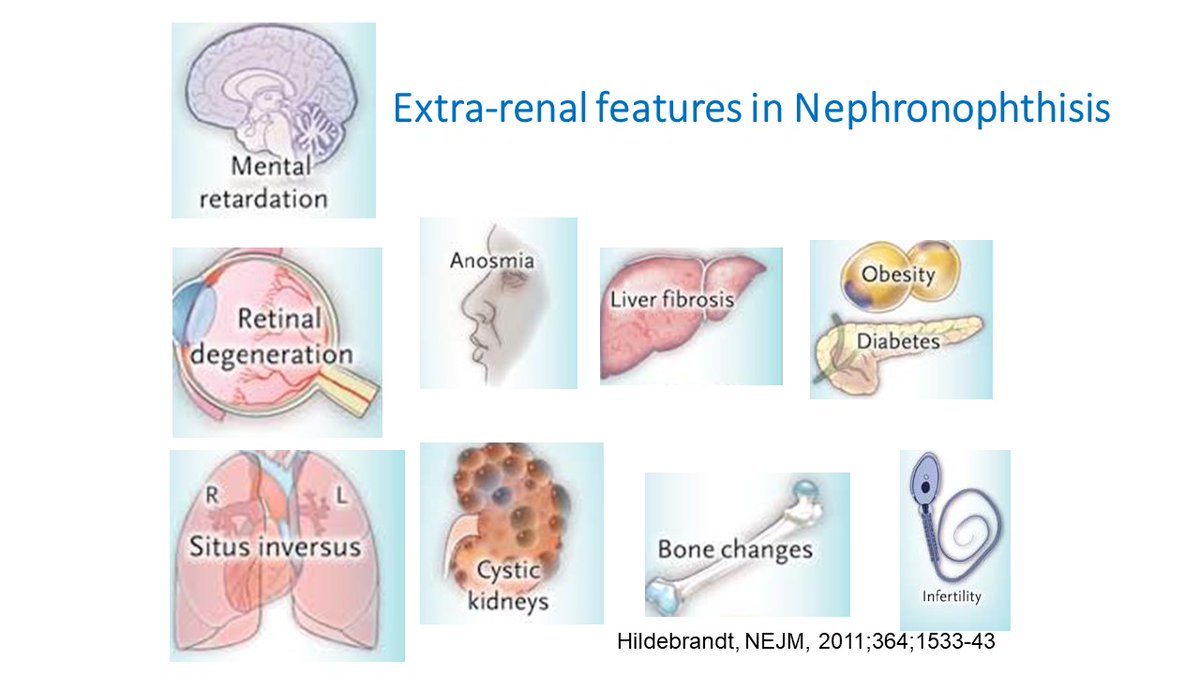
•Renal cysts
•Early onset diabetes mellitus
•Hypomagnesemia
•Intellectual disability and autism
ncbi.nlm.nih.gov/pmc/articles/P…
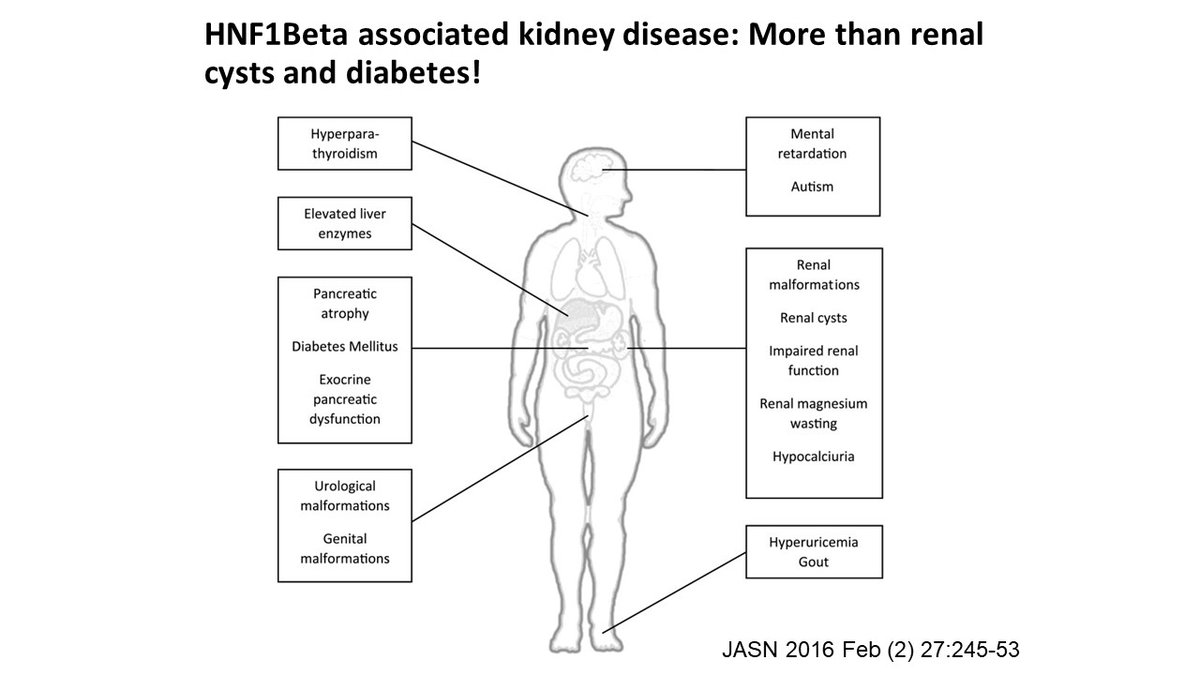
frontiersin.org/articles/10.33…
